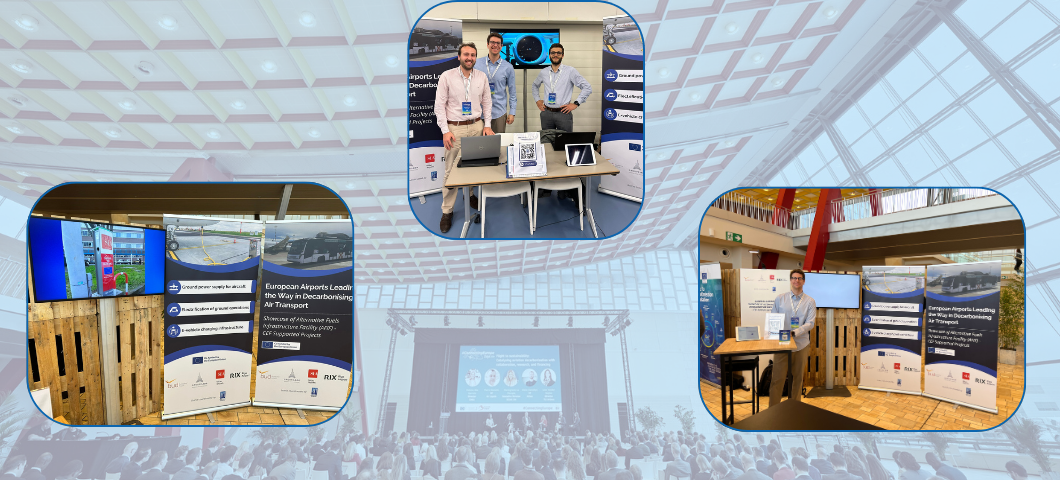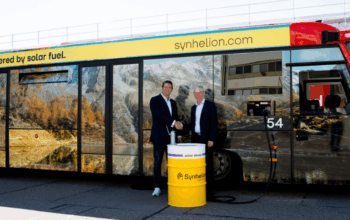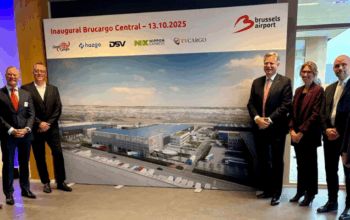
European airports leading the way in decarbonising air transport: showcase of Alternative Fuels Infrastructure Facility (AFIF) projects at Connecting Europe Days
Through the Alternative Fuels Infrastructure Facility (AFIF), a funding instrument from the European Commission which supports the renewal and upgrade of Europe’s alternative fuels infrastructure, airports in Europe have made significant progress towards decarbonisation.
During Connecting Europe Days (3-5 April 2024), the European Commission’s flagship mobility event, Riga and Budapest Airports, SEA Milan, and Groupe ADP presented their innovative projects at both the “Connecting Europe by Air” side event at Skyhall Brussels and the main exhibition at the SQUARE Convention Centre.
Coordinated by ACI EUROPE and standing as the only aviation-related exhibitors alongside SEA Milan, these airports presented their significant developments towards decarbonisation, including the ground power supply for aircraft, the electrification of ground operations, and e-vehicle charging infrastructures.
Each initiative highlights their commitment to reducing their carbon footprints and promoting a more sustainable future for aviation. Budapest Airport has installed over 180 charging points that enable aircraft to power their systems without having to run their engines while stationed at the gates. Riga Airport has upgraded its electrical infrastructure and established a solar panel park, substantially reducing CO2 emissions.
Groupe ADP presented two significant projects: the CLEARCDG project at Paris-Charles de Gaulle Airport, which focuses on electrifying airside activities and providing charging points for ground handling vehicles, whilst the GLORYA project at Paris-Orly Airport covers the entire electric chain at the airport, supporting electrified Ground Support Equipment (GSE) and enabling the cutting of emissions from Auxiliary Power Units (APUs) and GSE.
SEA Milan presented the E-Mago project at Milano Linate and Milano Malpensa airports, aimed at enhancing air quality and reducing greenhouse gas emissions and noise from aircraft ground operations.
Connecting Europe Days drew over 3,200 participants from more than 80 countries, including ministers, politicians, industry representatives, and transport stakeholders. The message from European airports was clear: whilst they are effectively using the funds currently provided by the European Union, ongoing support is crucial to achieve ambitious decarbonisation goals.
The projects showcased at Connecting Europe Days not only demonstrate European airports’ commitment to decarbonisation but also set a benchmark for global aviation. As airports in Europe continue to lead the way, sustained investment will be key to scaling up these efforts, ensuring that the aviation sector can meet its environmental targets and contribute effectively to the global fight against climate change.



